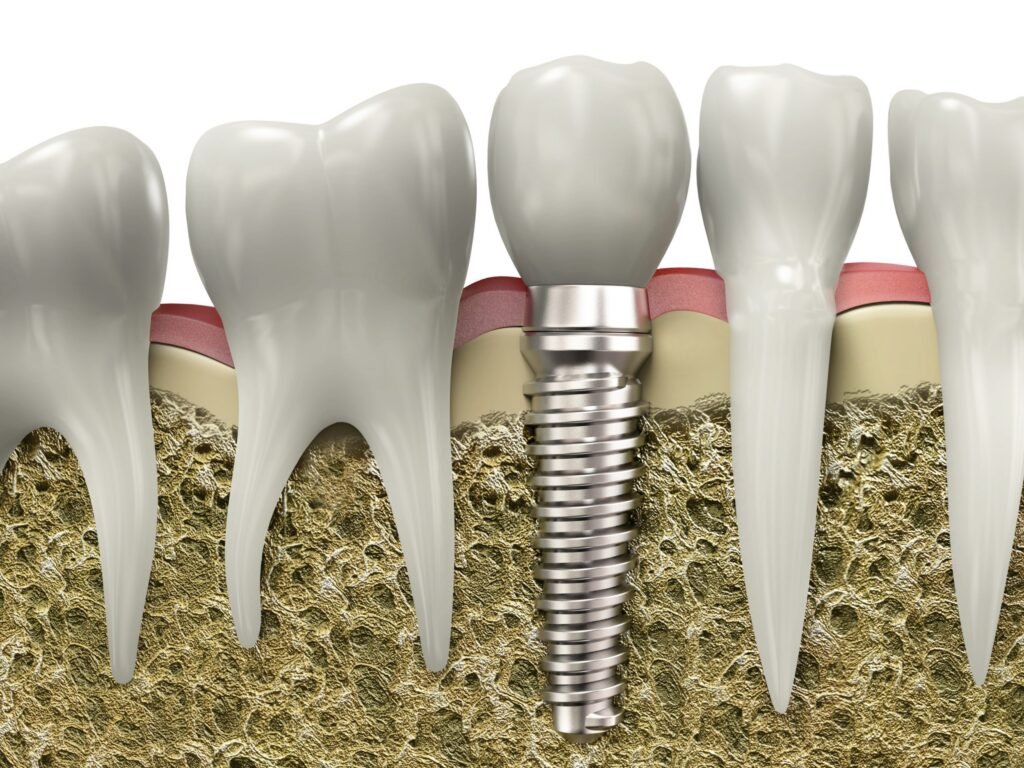If you’ve lost a tooth or several teeth, you’re probably exploring the best long-term replacement options. Among them, dental implants are the gold standard—not just for aesthetics but also for function and durability.
But how do dental implants really work? To help demystify the process, we’ve put together a step-by-step guide with insight from top Korean dental surgeons, who are globally recognized for precision, minimally invasive techniques, and digital implant technology.
🦷 What Is a Dental Implant?
A dental implant is an artificial tooth root made of titanium or zirconia that is surgically placed into the jawbone to hold a crown, bridge, or denture. It’s designed to look, feel, and function like a natural tooth.
Korean Dental Surgeon’s Insight:
“Think of an implant as a three-part system: the screw (implant), the connector (abutment), and the visible tooth (crown). Together, they form a solid and natural-looking replacement.”
🇰🇷 Why Get Dental Implants in Korea?
South Korea is a global leader in dental implant technology, offering:
- ✅ 3D digital scanning and guided surgery
- ✅ Minimally invasive implant placement
- ✅ Same-day or fast-healing implant systems
- ✅ Lower costs compared to the U.S./Europe
- ✅ Fluent English-speaking dental coordinators
🪛 Step-by-Step: How Do Dental Implants Work?
Here’s what to expect from start to finish:
1. 🩺 Initial Consultation and 3D Imaging
At your first visit, the dentist will:
- Examine your teeth, jawbone, and gum health
- Take digital X-rays and 3D CBCT scans
- Determine if you need bone grafting or sinus lifting
“We use 3D simulation software to map out the exact position and angle of the implant before surgery,” explains Dr. Kim, a Seoul-based implantologist.
2. 🦴 Bone Grafting (If Needed)
If your jawbone is too soft or thin, a bone graft may be required before implant placement. This helps ensure the implant fuses securely.
- Additional healing time: 2–6 months (if needed)
- Tech in Korea: Fast-healing graft materials or PRF (platelet-rich fibrin) to speed up recovery
3. 🧩 Implant Placement Surgery
- Done under local anesthesia or IV sedation
- The dental surgeon makes a small incision in the gum
- A hole is drilled into the bone, and the implant screw is inserted
- The area is stitched closed for healing
“In Korea, many clinics use digital surgical guides for pinpoint accuracy, reducing pain, swelling, and surgery time,” says Dr. Lee from Gangnam.
4. 💤 Healing & Osseointegration
This is the critical phase where the implant and bone fuse together (called osseointegration). This process usually takes:
- 8–12 weeks for most healthy adults
- During this time, you may wear a temporary crown or denture
Korean clinics often offer plasma-enhanced healing or laser therapy to accelerate bone fusion.
5. 🛠 Abutment Placement
Once healed, a small metal connector (abutment) is attached to the implant. This will later hold the permanent crown.
- The gum is reopened slightly
- The abutment is secured in place
- Healing takes about 1–2 weeks
6. 👑 Crown Attachment
After the gum tissue heals, a custom crown is placed on the abutment. This is the visible part that looks like your natural tooth.
- Made from zirconia, ceramic, or porcelain-fused metal
- Digitally matched to your bite, shape, and tooth color
- Permanently bonded or screw-retained
“Our CAD/CAM machines create lifelike crowns within 24 hours,” says Dr. Choi from Busan Dental Center.
🗓 Timeline Summary
| Step | Duration |
|---|---|
| Consultation & Imaging | 1 day |
| Bone Graft (if needed) | 2–6 months |
| Implant Surgery | 1 day |
| Healing / Osseointegration | 8–12 weeks |
| Abutment Placement | 1–2 weeks |
| Crown Placement | 1 day |
Total treatment time can range from 3 to 6 months, depending on your bone health and procedure complexity.
💰 Dental Implant Cost in Korea (2025 Estimate)
| Treatment | Cost (USD) |
|---|---|
| Single Tooth Implant | $1,200–$2,000 |
| Implant with Bone Graft | $1,800–$2,800 |
| All-on-4 (Full Arch) | $6,500–$10,000 |
| 3D Navigation Guided Surgery | +$300–$500 |
| Temporary Crown | Included or +$100 |
Note: Prices vary by clinic, materials used, and whether it’s a premium brand (e.g., Straumann, Osstem, Dentium).
👨⚕️ Tips from Korean Dental Surgeons
- Always check implant brand and origin
- Ask if the clinic provides CT-guided navigation
- Inquire about post-op care and warranty
- Look for clinics offering multilingual support if you’re a foreigner
✈️ Dental Tourism in Korea: What to Expect
- 🏥 1–2 days for initial surgery + return visits for abutment/crown
- 🛌 Many clinics offer hotel & airport pickup packages
- 🌐 Staff often speak English, Chinese, or Japanese
- 📱 Remote follow-up consultations available
“Korea is a global dental hub because we blend technology, speed, and aesthetics in one,” says Dr. Park, a top implantologist in Seoul.
🦷 Final Thoughts
Dental implants are a life-changing solution for anyone missing teeth. And with Korea’s reputation for advanced dental care, skilled surgeons, and digital innovation, it’s no surprise that patients from around the world travel here for treatment.
If you’re looking for an implant that looks natural, functions like a real tooth, and lasts decades—Korea might be your best choice.




